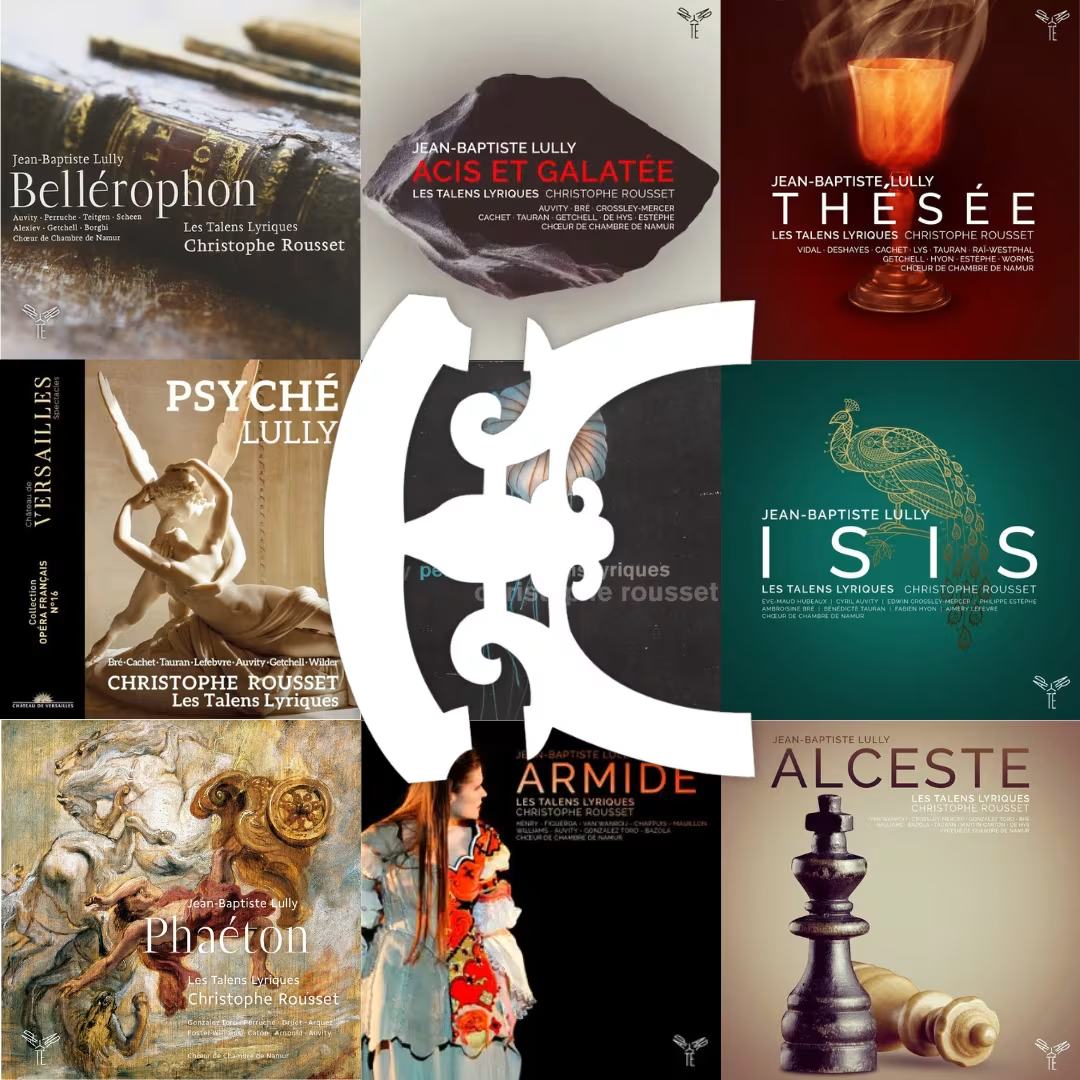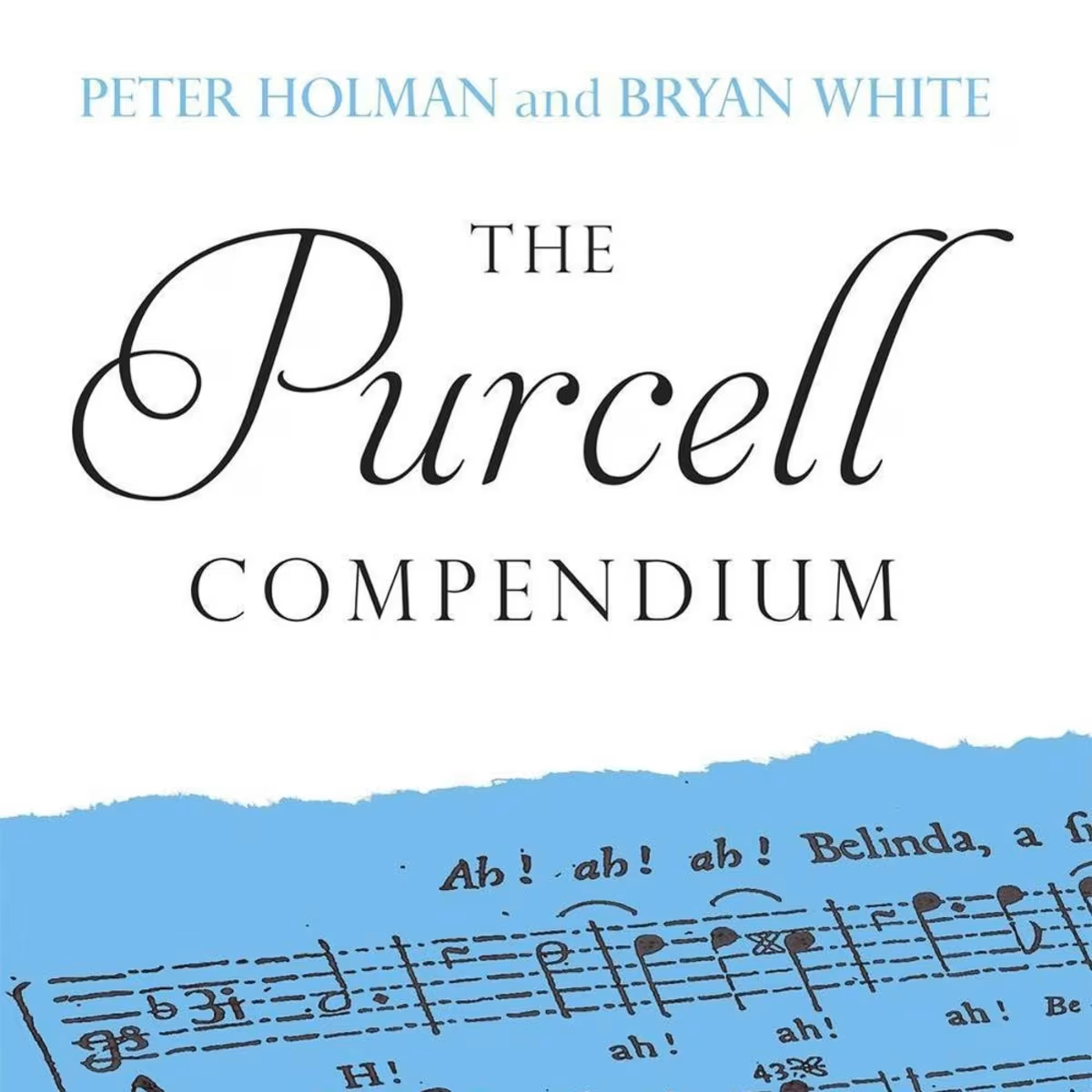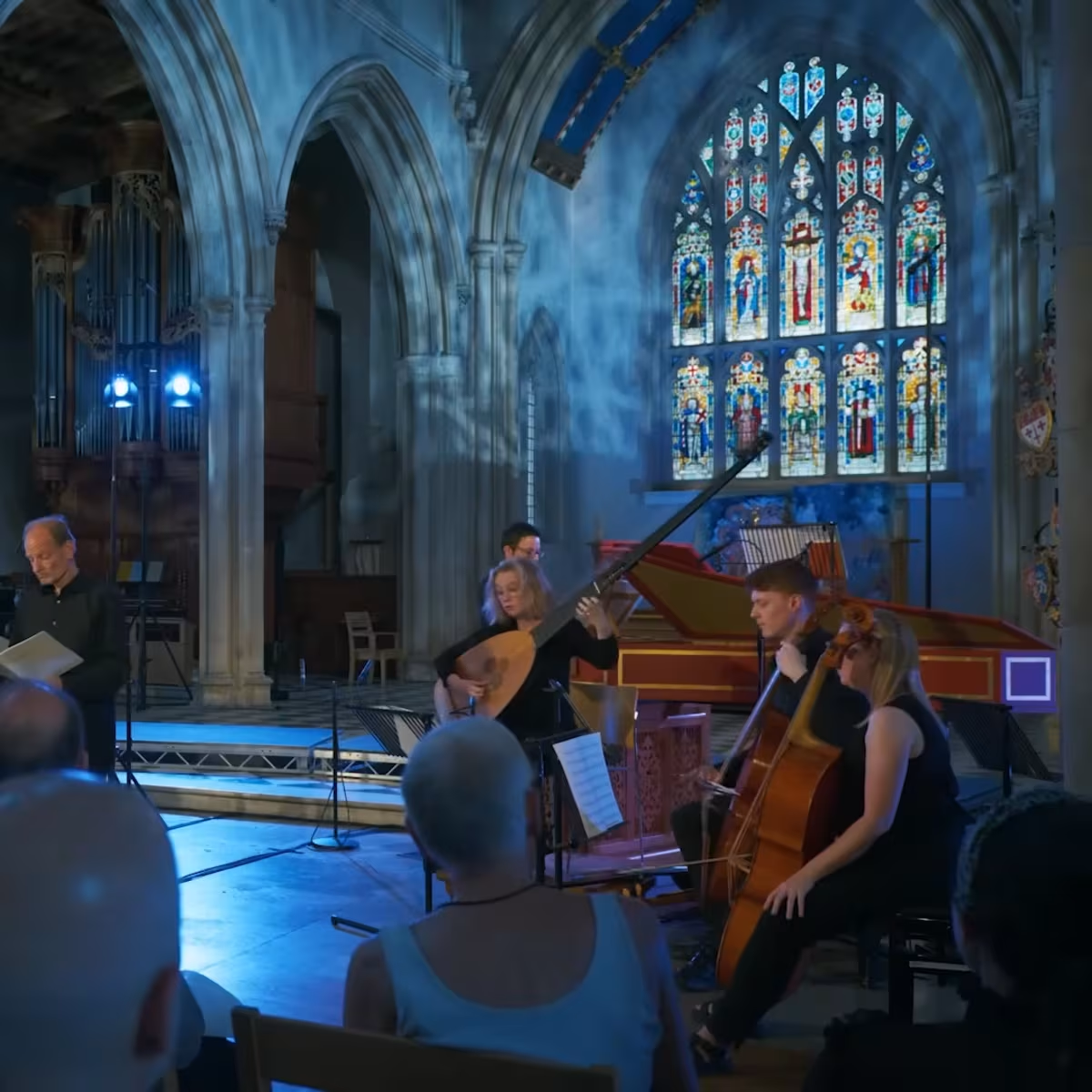Playlist
Playlist: The Lully Operas
Share this

FIRST PUBLISHED 27 SEP 2025
Born in Florence, Jean-Baptiste Lully (1632-1687) was employed at the French court of Louis XIV, where he spent most of his working life as a court musician. He collaborated closely with the playwright Molière, with whom he wrote several comédie-ballets including perhaps his most famous work, Le Bourgeois Gentilhomme.
Lully was also a prolific composer of operas. Over his career, he wrote 15 titles, each one marked by his mastery of orchestration, his use of dance rhythms, and his ability to evoke intense emotion through music. Thanks to his collaboration with his primary librettist Philippe Quinault, with plots which often drew inspiration from classical antiquity and epic poems, Lully established the tragédie en musique – a genre that embodies the fusion of drama, music, and dance, which eventually became a cornerstone of Baroque theatrical tradition. His operas were staged in opulent productions, frequently featuring elaborate dances and lavish set designs that reflected the political and cultural aspirations of Louis XIV’s reign.
French conductor and harpsichordist, Christophe Rousset – subject of Continuo Connect's latest feature – is coming to the end of recording the complete Lully operas, having so far recorded twelve of them with his ensemble Les Talens Lyriques. Once completed, his will be the first full cycle of the works to have been put on record. This playlist explores Rousset's extensive discography in the genre, with tracks from each of his recordings, as well as numbers from the remaining three, due for release in 2026.
TRACK LIST
(from the recordings by Les Talens Lyriques & Christophe Rousset, unless stated otherwise)
from Atys, LWV 53
A tragic opera first performed in 1676, Atys is based on Ovid's mythology, where the titular hero is loved by both the goddess Cybele and the nymph Sangaride, who is to marry another. In a fit of divine jealousy, Cybele drives Atys mad, causing him to kill Sangaride, leading to his own suicide. The opera, a favourite of Louis XIV, explores obsession and fate and culminates in Atys being transformed into a pine tree.
1. Prologue: Ouverture
2. Prologue: ‘Air pour la suite de Flore’ (Gavotte)
3. Act I: ‘Allons, allons, accourez tous’
4. Act III: Chœr de songes funestes ‘L'amour qu’on outrage’
from Thesée, LWV 51
Premiered in 1675, Thesée recounts the myth of the heroic young warrior Theseus with a plot that centres around a love triangle: Aegeus is in love with his ward, princess Aegle, while the sorceress Medea wants to marry Theseus, but Theseus and Aegle are in love with each other. Medea persuades Aegeus to kill Theseus, but he realises just in time, before Theseus drinks the poison, that he is his lost son.
5. Prologue: ‘La descente de Mars’
6. Act I: ‘Prions, prions la déesse’
7. Act II: ‘Reprise du premier air’
from Psyché, LWV 56
In Psyché (1678), Venus, enraged by mortal devotion to Psyché, commands Cupid to punish her. Psyché is sacrificed, rescued, and unknowingly falls for Cupid. After betrayal and trials, including a descent into Hell, she dies opening Proserpine’s box. Moved by her love, Jupiter intervenes, granting her immortality and reuniting the lovers.
8. Act I: Plainte italienne. ‘Deh, piangete al pianto mio’
9. Act V: Chœur. ‘Chantons les plaisirs charmants’
from Phaëton, LWV 61
An opera based on a story in Ovid's Metamorphoses, Phaëton (1683) tells the story of the arrogant son of Helios, the sun god, and nymph Clymene. Phaëton abandons his beloved Theona to pursue the Egyptian princess, Libya, but challenged by Libya’s suitor Epaphus, son of Jupiter, he seeks to prove his divine lineage by driving the sun-chariot. He loses control, and Jupiter destroys him with a thunderbolt to prevent the destruction of the Earth below.
10. Prologue: ‘Le retour de l’Âge d'or’: Ouverture
11. Act II: Chaconne
from Acis et Galatée, LWV 73
Comprising three acts and a prologue (much shorter than Lully's five-act operas), Acis et Galatée (1686) has a story that centres on a love triangle between Acis, Galatea, and the jealous Poliphème. Driven by envy, Poliphème kills Acis, but Neptune intervenes, transforming the slain lover into a river deity.
12. Prologue: Prélude. ‘Apollon en ce jour’
13. Act II: Chaconne. ‘Qu’une injuste fierté’
from Isis, LWV 54
Isis (1677) follows Jupiter’s pursuit of the nymph Io, despite her engagement to Hierax and her own guilt. Enraged Juno, Jupiter’s wife, imprisons and tortures Io. To save her, Jupiter pledges loyalty to Juno, who ultimately transforms Io into the goddess Isis. Contemporary audiences saw it as an allegory for Louis XIV’s romantic entanglements, and the subsequent courtly scandal ended Lully's collaboration with his long-term librettist, Quinault.
14. Prologue: Ouverture
15. Act I: ‘Échos, retentissez dans ces lieux pleins d'appas’
16. Act IV: ‘Tôt, tôt, tôt...'
from Alceste, LWV 50
Alceste (1674), Lully’s second tragédie en musique, retells Euripides’ Alcestis. When the titular queen sacrifices herself to save her dying husband Admetus, Hercules (Alcide) rescues her from the Underworld, only to nobly relinquish her. Commissioned to celebrate Louis XIV’s victory in Franche-Comté, the opera blends myth, heroism, and courtly celebration in majestic spectacle.
17. Prologue: Ouverture
18. Prologue: ‘L’Art d’accord avec la Nature’
19. Prologue: ‘Quel cœur suavage’
from Armide, LWV 71
Armide is one of Lully’s most psychologically complex heroines. Premiered in 1761, the opera tells the story of this sorceress who captures the crusader Renaud, but falls in love before she can kill him. She enchants him to love her, then despairs at its falseness. Unable to banish her feelings, she’s condemned to eternal love. When Renaud’s comrades break the spell, he escapes, leaving Armide devastated, powerless, and alone.
20. Act II: ‘Plus j’observe ces lieux, et plus je les admire’
21. Act II: ‘Enfin il est en ma puissance’
22. Act V: Passacaille
from Amadis, LWV 63
Amadis (1684) tells a tale of steadfast love and knightly valour, as Amadis and Oriane’s devotion is threatened by the sorcerers Arcabonne and Arcalaus. A secondary romance unfolds between Florestan, illegitimate son of King Perion, and Corisande, ruler of Gravesande. Commissioned by Louis XIV, it was the first of Lully’s operas to adopt a chivalric theme.
23. Act II, Prelude: ‘Amour, que veux-tu de moi’
24. Act II, Prelude: ‘Bois épais, redouble ton ombre’
from Bellérophon, LWV 57
Based on Hesiod's Theogony, Bellérophon (1679) was one of Lully's greatest operatic successes. In the story, the scorned queen Sténobée, jealous of Bellérophon’s love for Princess Philonoé, enlists the magician Amisodar to transform the garden into a barren desert and unleash a terrifying chimera on Lycia (the ancient kingdom in southwest Anatolia). The god Apollo intervenes, restoring peace and resolving the chaos.
25. Act III: Chœur du peuple: ‘Assez de pleurs’
26. Chanson d’un berger (Menuet I): ‘Pourquoi n’avoir pas le cœur tendre’
from Roland, LWV 65
Inspired by Ariosto's epic poem, Orlando furioso, Lully’s opera, premiered in 1685, tells the story of Charlemagne’s nephew Roland, who loves Angélique, unaware she loves Médor, a soldier. Angélique hides from Roland using an invisibility ring. She and Médor marry in secret. Devastated, Roland descends into madness until fairy dreams restore his reason. He renounces love, and rides triumphantly to battle.
27. Act I: Air - ‘Dans nos climats sans chagrin, on soupire’
28. Act IV: ‘Je suis trahi! Ciel!’
29. Act III: ‘C'est Médor qu'une Reine si belle’
from Persée, LWV 60
Persée, son of Jupiter, is tasked to defeat the monstrous Méduse terrorizing Ethiopia. Andromède, daughter of King Céphée and Queen Cassiope, is betrothed to her maternal uncle, Phinée, but loved by Persée. After heroic battles, including slaying Méduse and a sea monster, Persée saves Andromède. Divine forces bring peace, culminating in their celebrated wedding.
30. Passacaille
31. Entrée des fantosmes
32. Troisième air des jeux junioniens
33. Gigue
from Proserpine, LWV 58
First performed in 1680, Proserpine is another opera with a plot derived from Ovid's Metamorphoses. The story centres around the abduction of Proserpine by Pluton, with side plots concerning Cérès' love for Jupiter and the love intrigue between Alphée and Aréthuse.
34. Prologue: Air pour les Trompettes – ‘Venez, aimable Paix, le Vainqueur vous appelle’ | Le Concert Spirituel & Hervé Niquet
from Cadmus et Hermione, LWV 49
In 1672, Lully gained exclusive rights to musical theatre in France, ending his collaborations with Molière, and launching a new genre with Cadmus et Hermione. This first ‘tragédie lyrique’ blends continuous singing, dance, and drama. Again, based on Ovid's Metamorphoses, it follows Cadmus’s battle with a dragon and his love for Hermione, uniting myth and courtly spectacle.
35. Ouverture | La Poème Harmonique & Vincent Dumestre
from Achille et Polyxène, LWV 74
Achille et Polyxène (1686-7) is a tragédie lyrique begun by Lully and completed by his pupil Pascal Collasse eight months after Lully’s death from a conducting injury. Unusually sombre, it opens with grieving Muses, and ends tragically as Polyxène takes her own life. Between heroism and heartbreak, the opera recounts Achilles’ doomed love for the Trojan princess against a backdrop of war and fate.
36. ‘Patrocle va combattre, et j’ai pu consentir’ | A Nocte Temporis & Reinoud Van Mechelen
Share this
Keep reading

The Purcell Compendium
A reference volume covering an extensive range of Purcell studies, including his life and works, his milieu and the reception of his music to the present.

Jeffrey Skidmore: Made in the Midlands
As he approaches his 75th birthday, Jeffrey Skidmore reflects on a career that has shaped musical life in Britain in distinctive ways.

Spiritato with Elizabeth Kenny | Music to her Majestie: Odes for the last Stuart
On Queen Anne’s birthday, we share Spiritato and lutenist Elizabeth Kenny’s musical portrayal of the last Stuart and her lifelong patronage of the arts.


